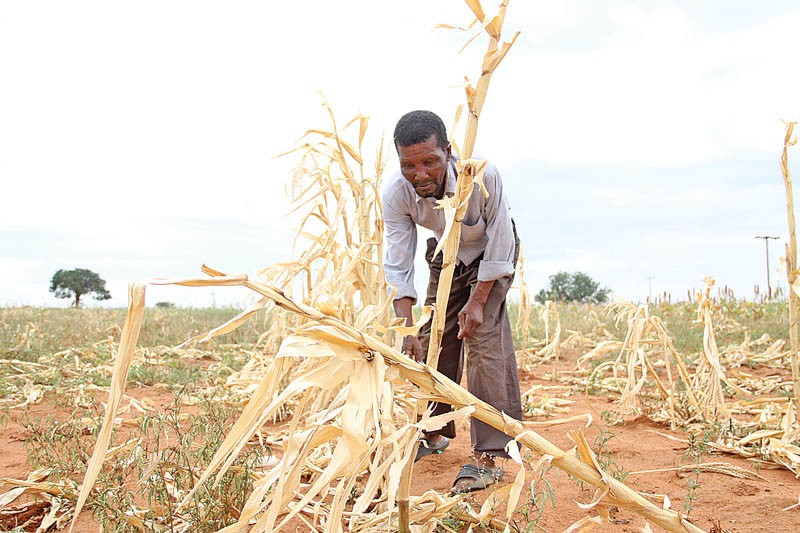Drought measures to cost P445m
Mbongeni Mguni | Thursday July 30, 2015 15:13


According to the supplementary request, ministerial accounting officers appeared before the Committee on July 22 and were able to secure funding for major drought interventions. President Ian Khama declared a drought late in June, announcing an array of interventions including support for the Agricultural Credit Guarantee Scheme, a 25 percent subsidy to farmers on certain livestock feed purchased through the Livestock Advisory Centres as well as nutritional support for vulnerable groups.
According to the estimates laid before legislators yesterday afternoon, the committee approved an amount of P103.1 million to cover the 85 percent subsidy to farmers who obtained seasonal loans from CEDA and the National Development Bank under the Agricultural Credit Guarantee Scheme.
Another P237.5 million has been approved for a second meal to primary schools in the Okavango District and hostels in Remote Area Dweller settlements in line with the drought declaration. A further P4 million has been set aside for Community Based Management of Acute Malnutrition to provide direct feeding of children aged below five years who are moderately malnourished.
An amount of P52.8 million will provide the 25 percent subsidy for feeds that include di-calcium phosphate, drought pellets, bran and coarse salt, while P38.9 million has been set aside for emergency water supply projects.
The Ministry of Environment, Wildlife and Tourism will receive P7 million to expand its fleet of vehicles used in veldt fire management and control.
“The accounting officer stated that although most districts received normal to below normal rainfall in 2014/15, there is abundance of biomass produced in the year 2013/14 as a result of good rains received in that year and therefore a high number of fire breaks is anticipated.
“Occurrence of these fires is likely to aggravate the deterioration of grazing for both livestock and wild animals.” When approved by parliament, the supplementary funding is expected to be a boon for farmers and vulnerable groups hard hit by persistent heat waves and dry weather in the 2014/15 cropping season.
Government’s Drought and Household Food Security Outlook conducted between March and April this year, forecast national cereal production at 7,382 metric tons representing just three percent of the national cereal requirement of 300,000 metric tonnes.
The Botswana Agricultural Marketing Board (BAMB), which manages the national strategic grain reserves, has however been quick to allay fears of cereal shortages this year, particularly around the national staple of sorghum.
“In terms of food security, we are more than good. In fact, we have never been better than this year because of the bumper harvest we had last year,” BAMB CEO, Edison Wotho told Mmegi recently.
Wotho said though national silos were replete with sorghum and beans, they were softer in maize.
